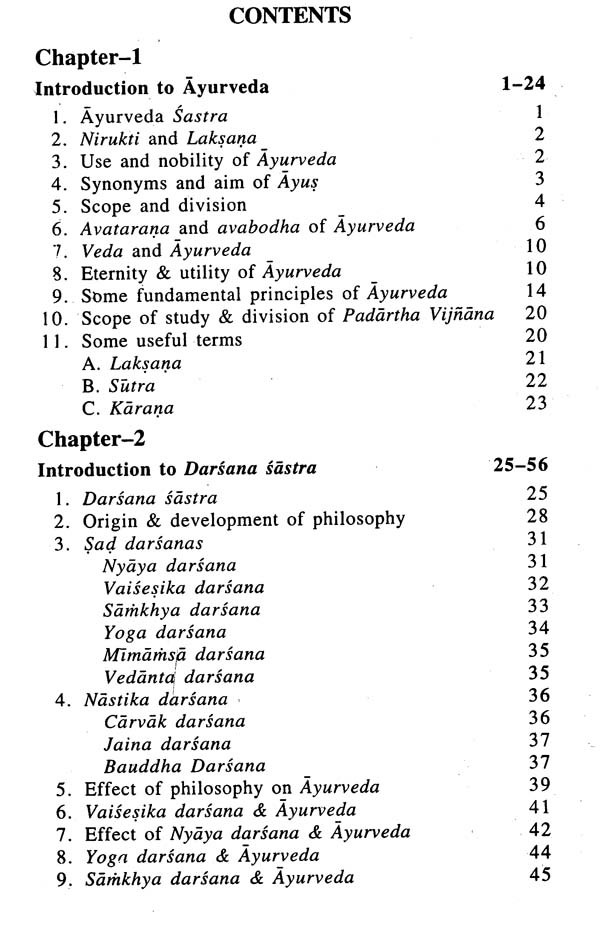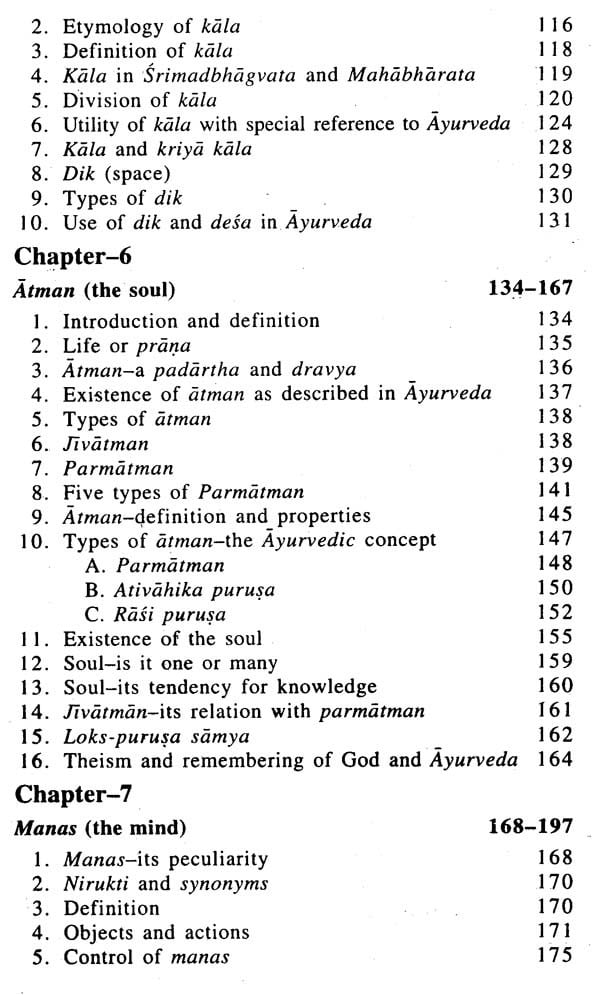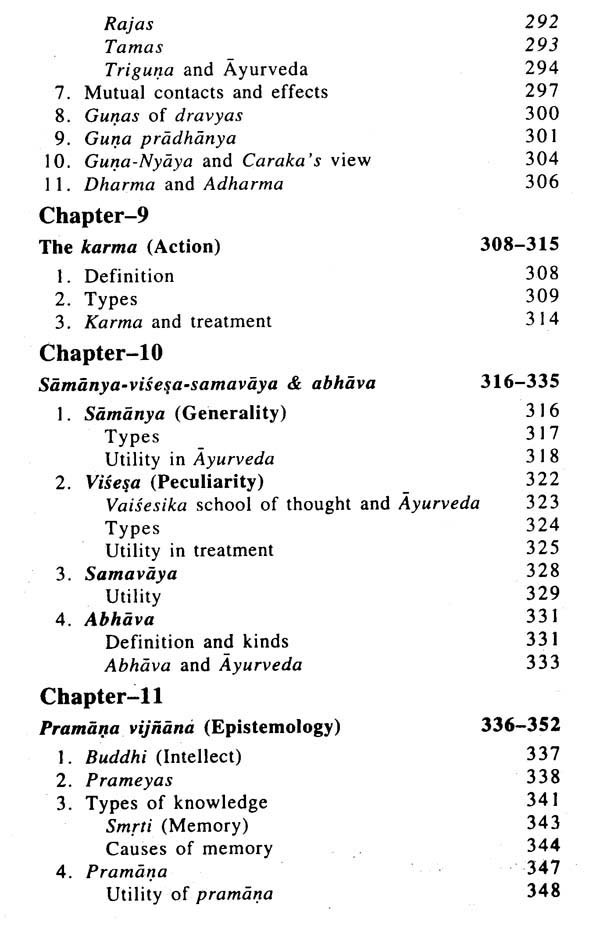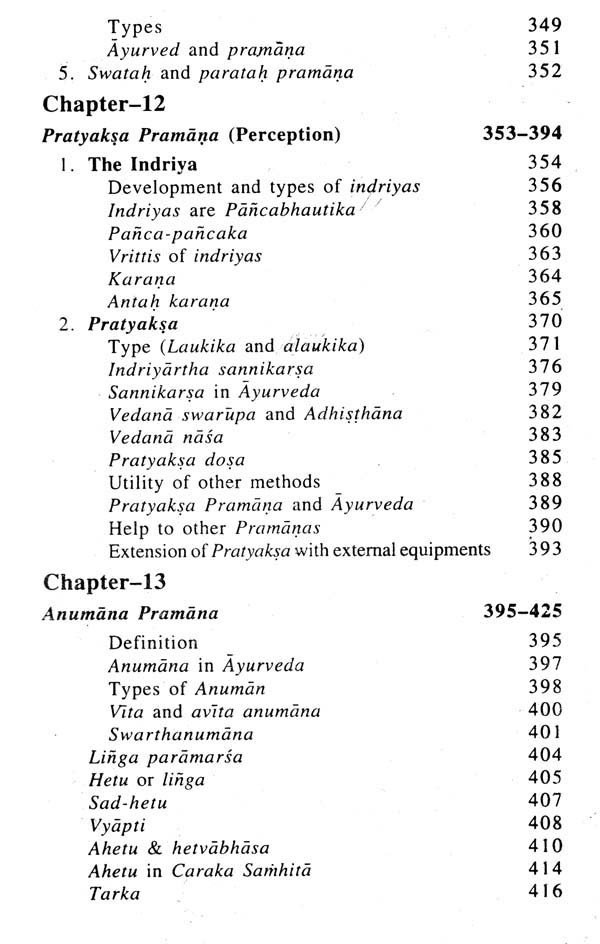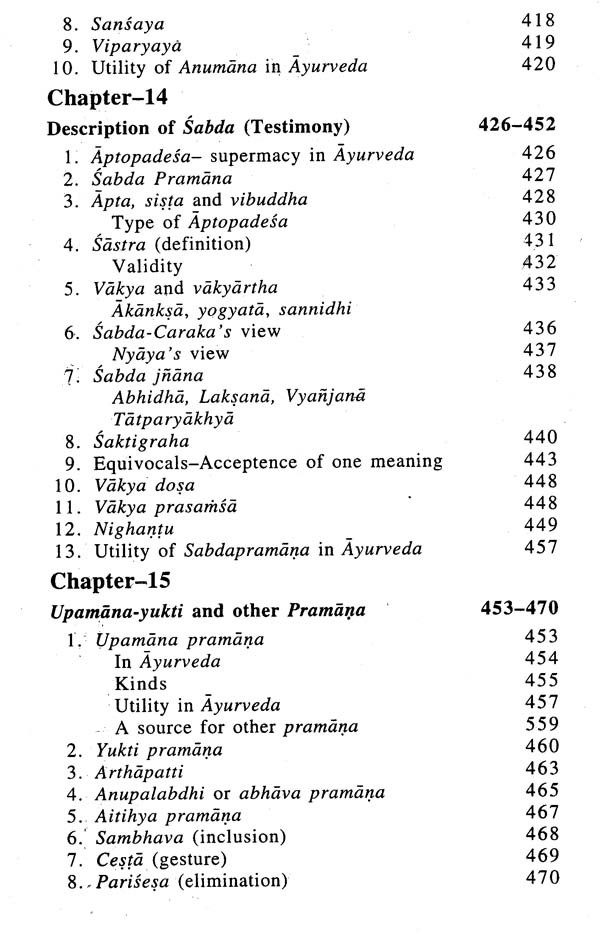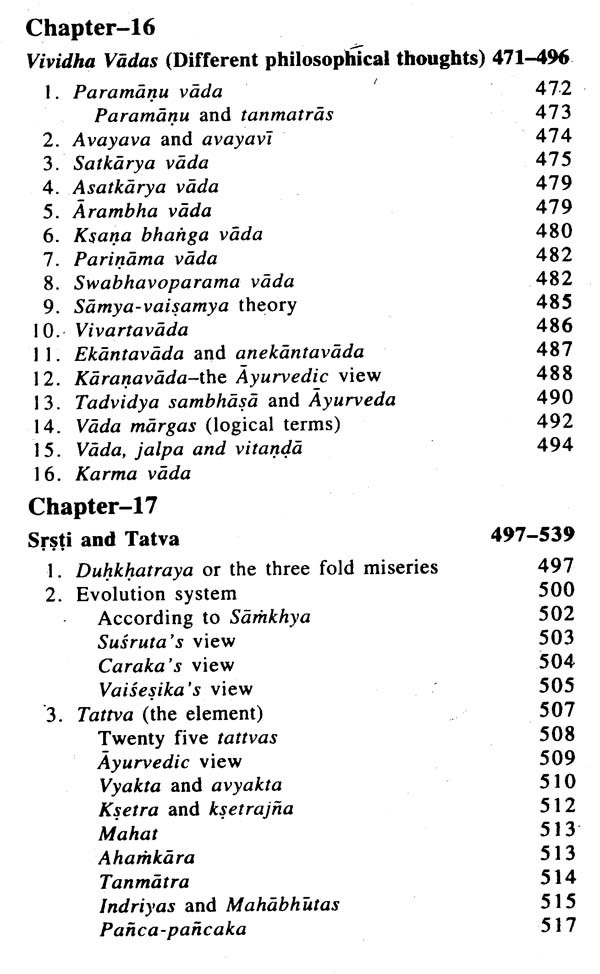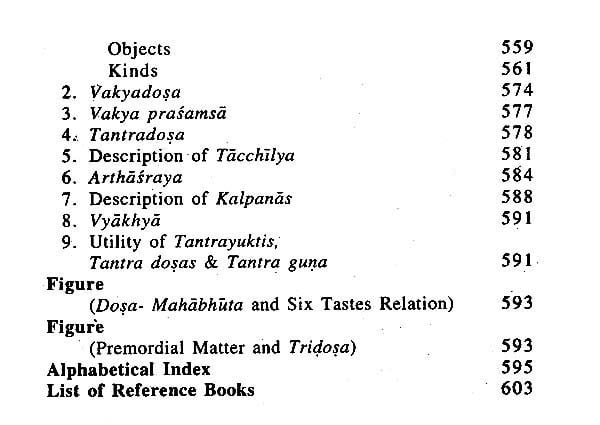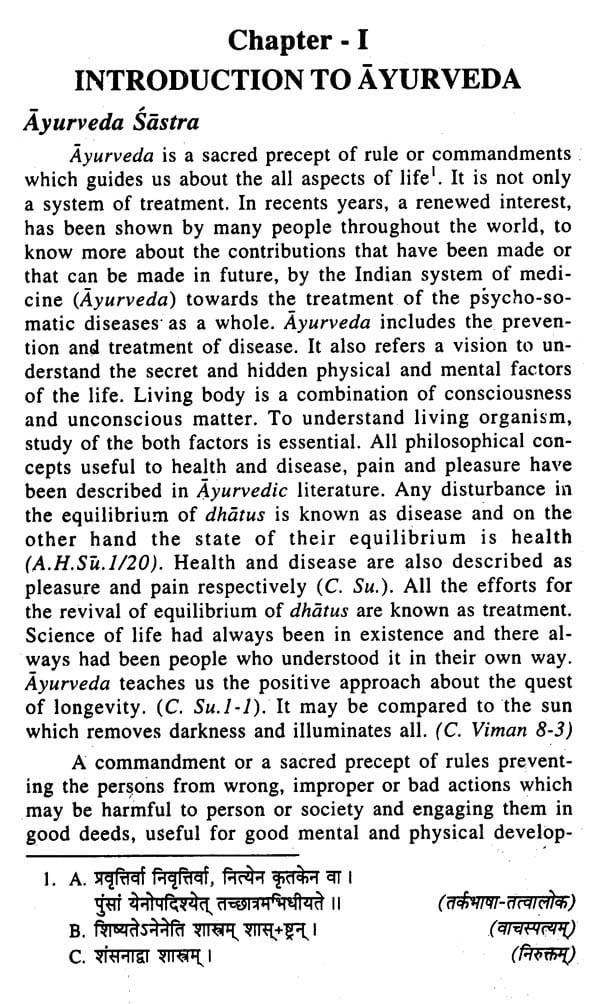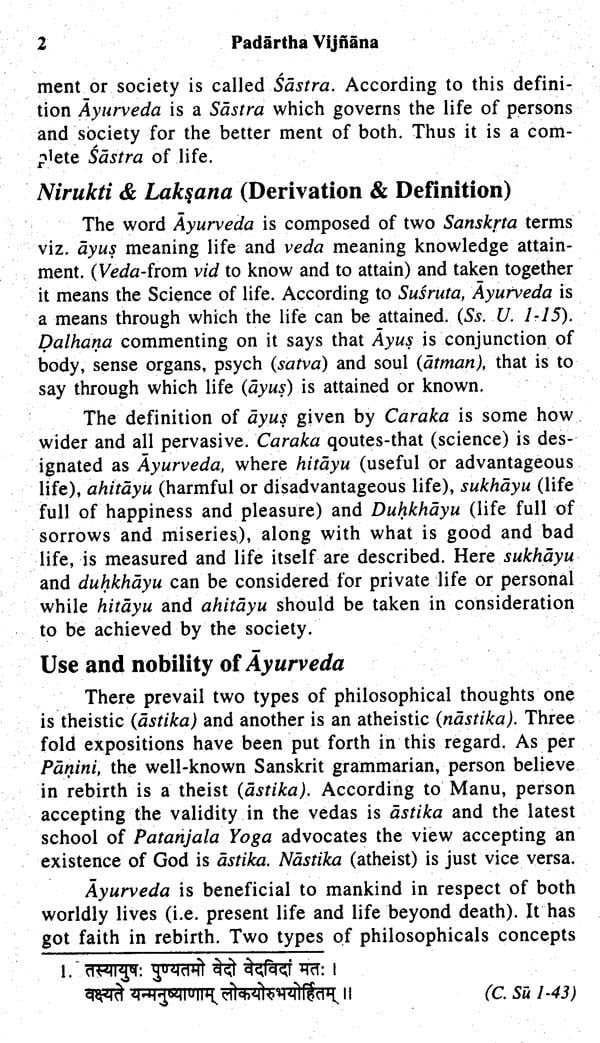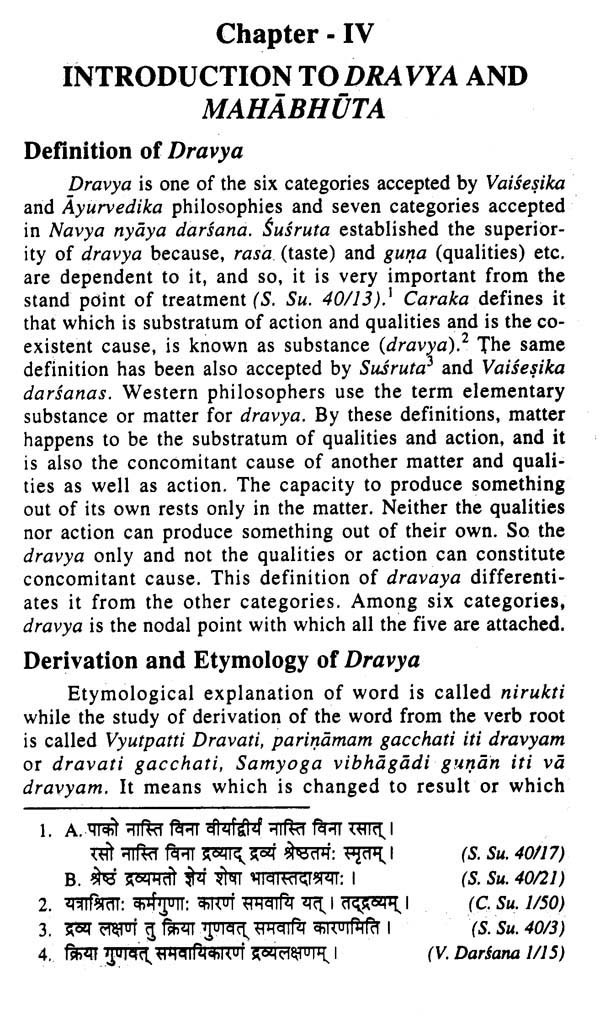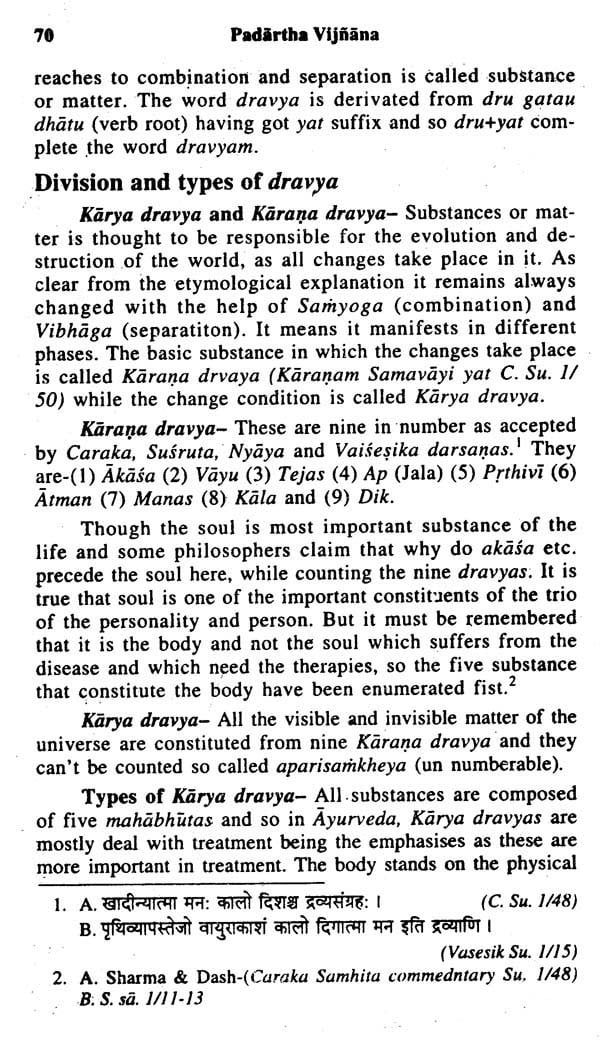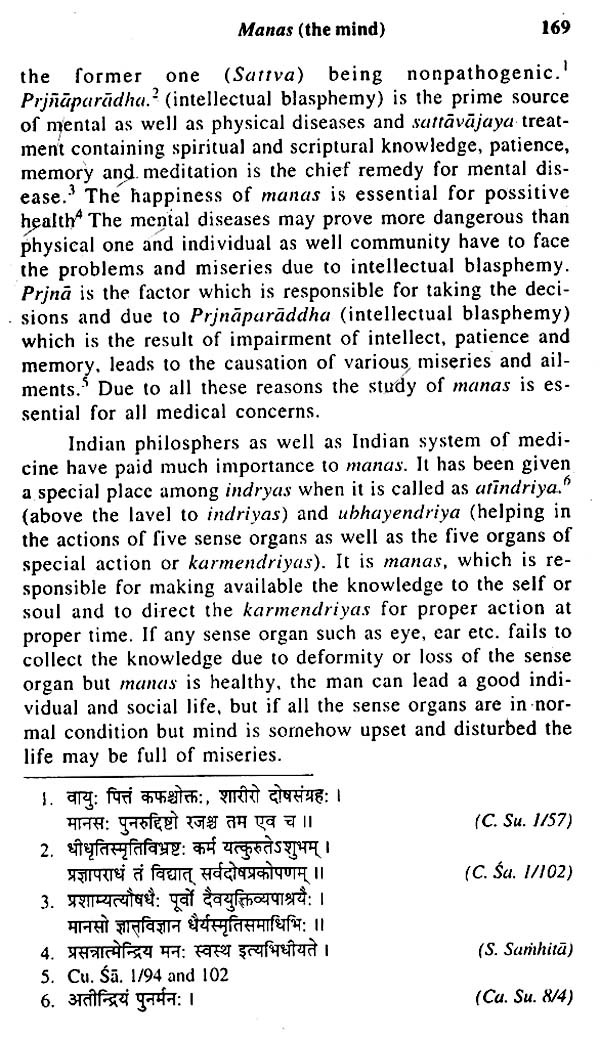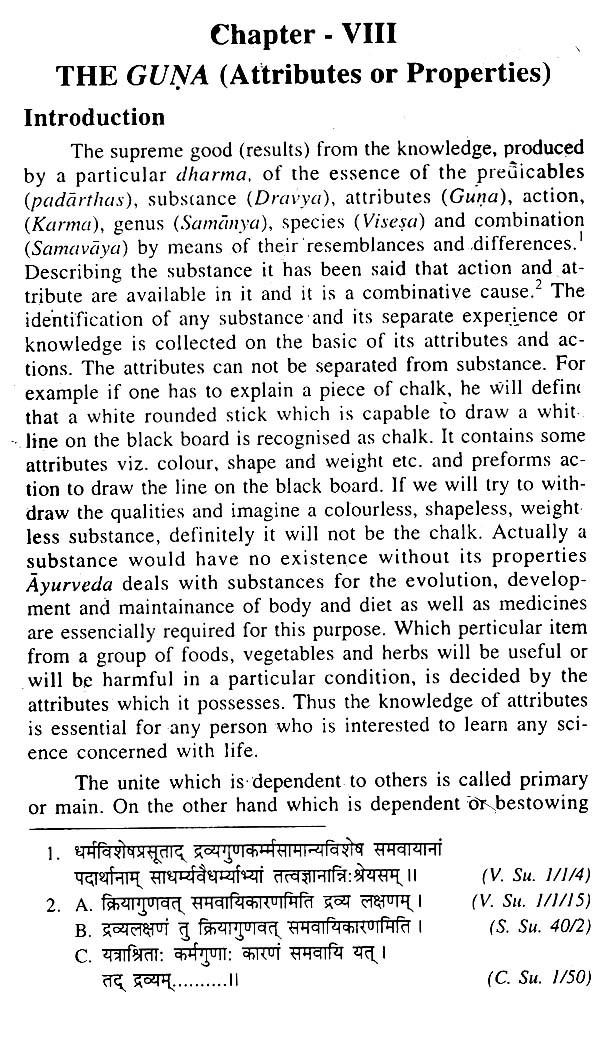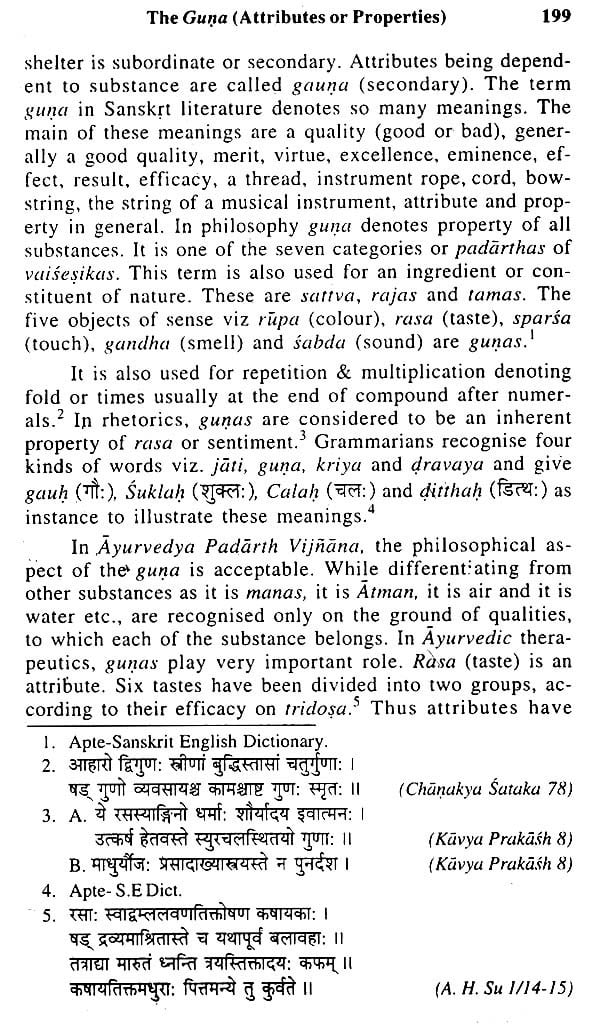
Padartha Vijnana- Basic Principles of Ayurveda
Book Specification
| Item Code: | NBZ233 |
| Author: | Yogesh Chandra Mishra |
| Publisher: | Chaukhambha Sanskrit Sansthan |
| Language: | ENGLISH |
| Edition: | 2019 |
| ISBN: | 978818693755602 |
| Pages: | 606 |
| Cover: | PAPERBACK |
| Other Details | 8.50 X 5.50 inch |
| Weight | 630 gm |
Book Description
The present work "Padartha Vijnana", by a well known scholar and author of repute Prof. Dr. Y.C. Mishra, is a complete and comprehensive treatise, which deals with the basic principles of Ayurveda.
This is the first book in English which deals with the subject in all completeness and clarity, covering the various unique aspects of basic principles of Ayurved like Manas (mind). Atman (soul), Indriyas (sense organs) Ayu (life).
The book, no doubt, will prove as most useful asset to the under and postgraduate students of Ayurveda. It will also prove helpful to all those, who are interested to peep in the basic fundamentals of the science as well as the art of living known as Ayurveda.
The author, being a senior professor in the subject of basic principles of Ayurveda, with a good background of Sanskrta language and philosophy, the book bears a rare blend of conceptual authenticity, linguistic clarity and philosophical based scientific temper. It is an unique attempt to fill the gap in the field of Ayurvedic literature.
A eminent scholar of Ayurveda, Philosophy, Sanskrta and Indian culture. Prof. Yogesh Chandra Mishra, born in 1945 in a renowned, dedicated for cultural and moral values family of vaidyaraj Pt. Shrikrishna Kumar Mishra and Smt. Lavangashree Devi, in a small village sherganja (Pilibhit- U.P.). He is dedicated academist as well as a well known social organizer of the positive forces of society for the world wide promotion and re-establishment of the vast glory of Ayurveda.
Prof. Mishra completed his Ayurvedacharya (BAMS) in 1965 from the oldest and prestigious institution of north India (L.H, State Ayurvedic College, Pilibhit, U.P.) in a top rank. Further the thirst of knowledge enforced him to continue his studies as he obtained degrees, like Shastri, M.A. (Sanskrit) and Sahityacharya in due course. He worked hard on the broken and incomplete Kashyapa Samhita and was awarded Ph.D. in 1978. Prof. Mishra, starting his teaching career in 1967, is presently working as principal and suptt. Of Ayurvedic College, Bareilly since 1995.
His works as book's publications, presentations in seminar as well as radio and T.V. programmes are being appreciated by both the students and learned scholars of Ayurvedia.
How, where and when the universe basically and at first sight was developed, has been the topic of enquiry and discussion among the scholars. Whether basic element was single or multidimensional one? Whether it was inanimate or animate (conscious or unconsious). Along with these so many other questions are also yet being discussed and their answers are still awaited, though they are emphasized as per the believes of a perticular person, place and time. A baby is born before our eyes and reaches so many wanted or unwanted situations in the life. The infant grows as an adult and old man gradually and in last phase passes away facing geriatic problems. But some of them disappears even they are young chaps. The other question which attracts us is what becomes after death this, that the riddle of life and death is before us from the infinite time. It is true that every person may not have the thirst of knowledge like Lord Buddha, even then every body tries to get rid of sarrowful and unwanted conditions of life. Man has eternally endeavored to keep him self free from three type of miseries namely physical, mental and spritual. For this purpose, philosophy or darsan comes forword'. According to Indian traditions humanlife is not to be destroyed aimlessly. It has got clear four objectives namely dharma (to fulfil one's duties and to perform religious rites,) artha (to aquire wealth and other means thought to be essential or useful for the life), Kama (to satistical the worldy desires`) and moksa (to attain salvation). Caraka denotes that a man of normal mental faculty, intelligence, strength and energy, desirous of his well-being pertaining to this world and the world beyond has to seek three basic desires, viz. desire to live, desire to earn and desire for happiness in future life i.e. virtuous acts.(C. Su. 11). Good health stands at the very root of virtous acts, aquirment of wealth, gratification of desires and final emancipation. Disease are destroyer of health, well being and life. On the other hand good health is considered essential for the achievement of these objectives.
Even if the questions of life and death are not taken in the mind, we see that so many actions and changes start from the very movement of the first cry of a new born. In these activities the strength is dicreases and the body tissues are damaged. Nutrition is needed to compensate the loss as well as to fulfil the requirements of the development of the body. Experiences like thirst and hunger menifest these requirement. The needs of infancy and childhood may apperantly differ from the requirements of an young or old person, but actually it is not true.
All the branches of modern science and technology like physics, chemistry, biology and equipments like radio and computer etc. are trying to make the humanity healthy and happy. Being appreciable the efforts are incomplete and single sided.
According to the western, as well as some Indian philosophical concepts, 'The Man', the centre of all the activities is thought to be a political or social or economical animal. It is also thought that the fulfilment of the desires and requirements of the physical body, money and other sourses can make a man happy and healthy. But it is a partial thinking. The fact is to be remembered that life (ayu) is not mere physical thing. It is conjuction of body and vitae (prana). The being (person) continues to live only till vitae remain conjoined with body, Caraka denotes.
i.e. the term ayus (life) stands for the combination of the body, sense organs, mind and soul and its synonyms are dhari (the one that prevents the body from decay), Jivita (which keeps alive), nityaga (which serves the permanent substratum of this body) and anubandha (which transmigrates from one body to another). The body and mind constitute the substrate of disease and happiness (i.e. positive health) and balanced utilization of time,. mental faculties and object of sense organs is the base of health and happiness. (C. Sa. 1-55). The man or life can not be divided into several segments and the solution for health and happiness can not be searched in parts. A holistic approach can solve the problem and Ayurveda, the science of life has presented an integral approach towords health. According to Stthruta-
It reveals that even all the physical requirements of a man are being fulfilled, if the mental and spritual happiness do not persist, the man can not be called swastha (healthy). An example can illustrate the matter.
A successful buisiness man is ready to take his dinner with his family in his well furnished and well equiped house. He is feeling hunger and the items on the dinning table are according to his choice. On the moment he starts to take his dinner, the call bell rings, a teligram consisting a massage of an accident of his son, visiting another city for bussiness purpose, is presented by his servent. The massage-effected the hunger and liking of the person and being mentally upset he becomes unable to take the food.
It is well known fact that the modern sciene is based on the laws of physical sciences and therefore it can be directly perceived and measured. In order to perceive these laws, initially sense organs were used directly. Now finer and finer equipments are being developed for this purpose.. All those facts which can be demonstrated through the-physico-chemical methods are treated as scientific and others are called to be unscientific. But when these physico-chemical methods are applied to the study of living organism like man and his desease and health, difficulty arises. Because of the ignorance about the basic knowledge and how the life activity is generated initially in the living matters, all the laws of physics are not always demonstrable. In spite of rapid advances, there are areas, such as the nature and the quality of the mind, intelligence, consciousness or soul, which are still beyond the reach of available scientific equipments. For this purpose the psychic methods and philosophical concepts help us. Philosophy discusses the functional status of not only of the normal mind, but of the abnormal state of mind also, that is one of the reasons that Caraka, Susruta and other Ayurvedic authorities have made a free hand use of philosophical thoughts in the feild of medicine.
**Contents and Sample Pages**
